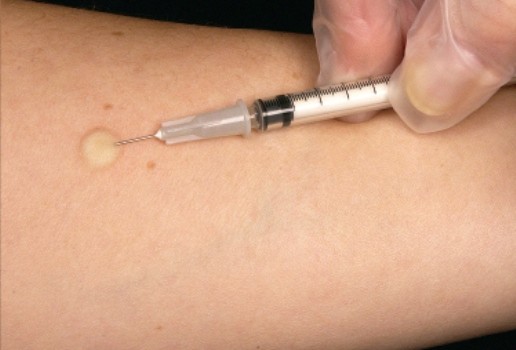Every 15 seconds in the world, someone dies of tuberculosis (TB) and one third of the world’s population are infected with TB.
And did you know Birmingham has one of the highest rates of TB in the UK? The disease is not common in the UK, but it is on the increase and at present around 400 cases of TB are diagnosed in Birmingham every year.
TB is a bacterial infection which spreads from person to person through mucus, in the same way as colds are passed on. It is a serious condition which mainly affects the lungs, but can also affect other parts of the body, including the bones and nervous system.
Anyone can catch TB and people who are particularly at risk include:
- Those living in areas where levels of existing TB infection levels are high.
- People who have been in close contact with someone who has been infected.
- Those who have a weak immune system due to HIV.
- People who have lived in or travelled to parts of the world where TB is common.
Symptoms will vary depending on where the infection occurs and Hanna Kaur, lead nurse for TB at the Trust, highlights some of the symptoms to look out for: “Night sweats, weight loss, fatigue and loss of appetite are the most common symptoms.
“You could also end up having headaches, abdominal pain and swollen glands. But most TB cases can be cured and the majority of people will require a course of antibiotics for six months.
“Taking medication for six months is the most effective way of reducing the risk of TB spreading. Leaving TB untreated can be fatal and you should see your GP if you have a cough that lasts for more than three weeks or if you cough up blood.”
Here at the Trust we provide an extensive range of inpatient and outpatient services to help patients overcome TB. Family, friends and colleagues of TB patients are assessed by our specialist nurses and screened for TB if they are felt to have had significant contact with an infectious TB case.
Hanna adds: “TB can affect anyone meaning we see a diverse range of patients. Co-infected patients (patients who have TB and HIV) and vulnerable patients (alcohol dependant or homeless) are some of the people we see, along with children and adults.
“As part of my role as lead nurse for TB at the Trust, I’m responsible for managing a team of nurses and lead the TB service. We oversee patients and run clinics at the Birmingham Chest Clinic, Heartlands Hospital, Good Hope Hospital as well as homeless centres.”
If you are diagnosed with TB, there are precautions you can take to help prevent TB spreading to your friends and family:
- Stay away from work school/college until you are advised it is safe to return.
- Make sure you cover your mouth when coughing.
- Open windows when possible enabling you to take in a good supply of fresh air.
- Carefully dispose of any used tissues in a sealed plastic bag.
For more information about TB and the services the Trust provides, visit the Trust’s TB services website at http://tuberculosis.heartofengland.nhs.uk or call 0121 424 1395.







